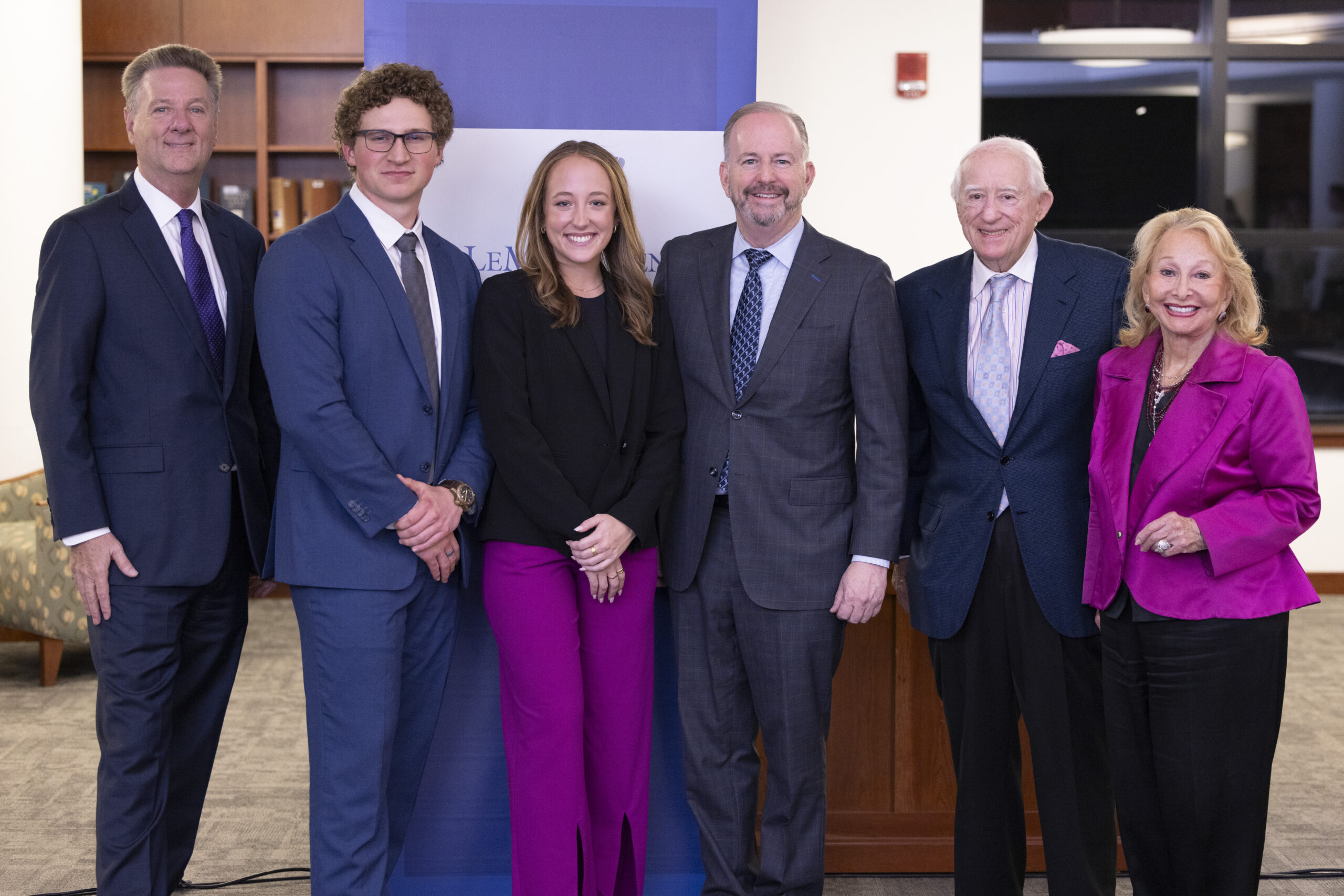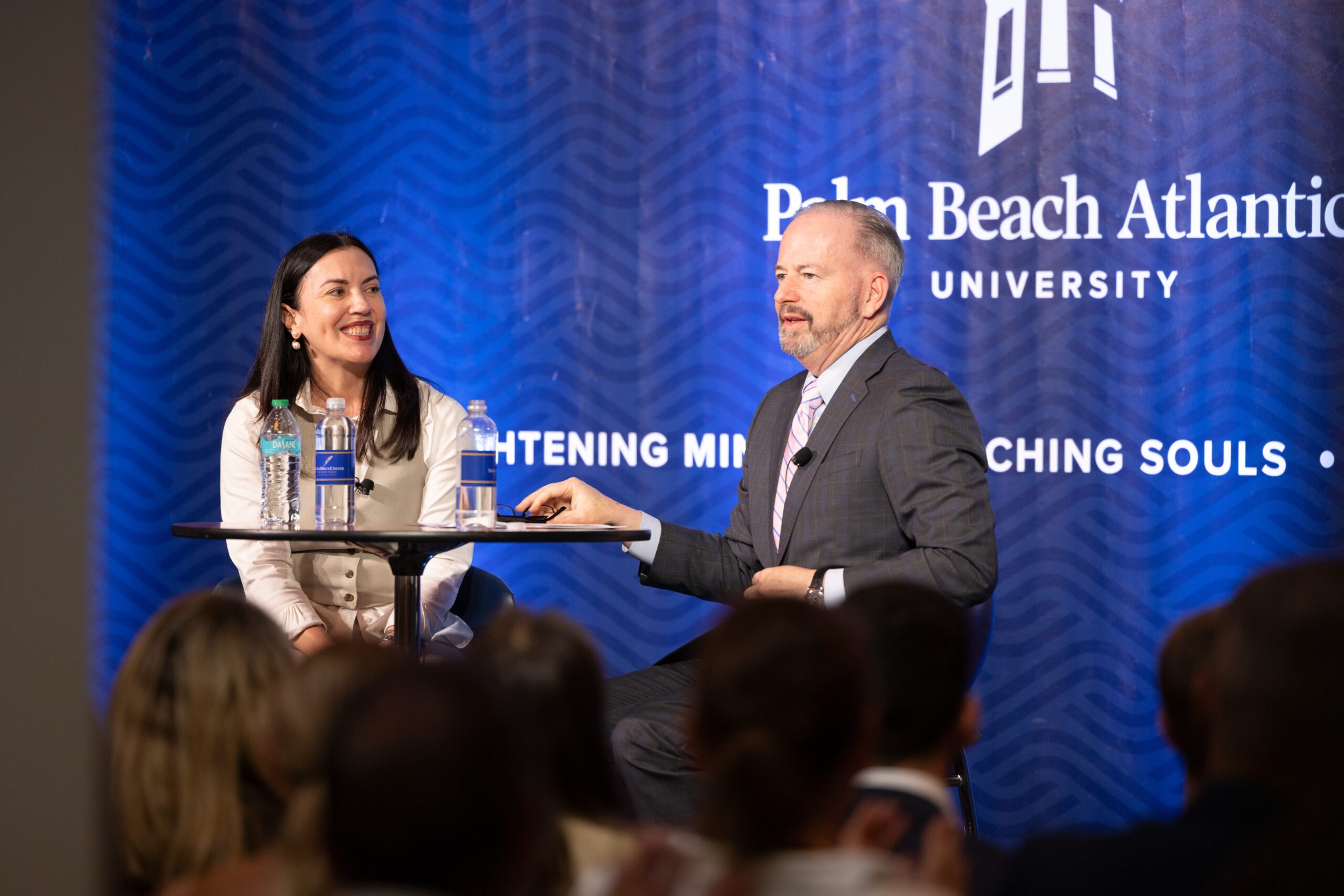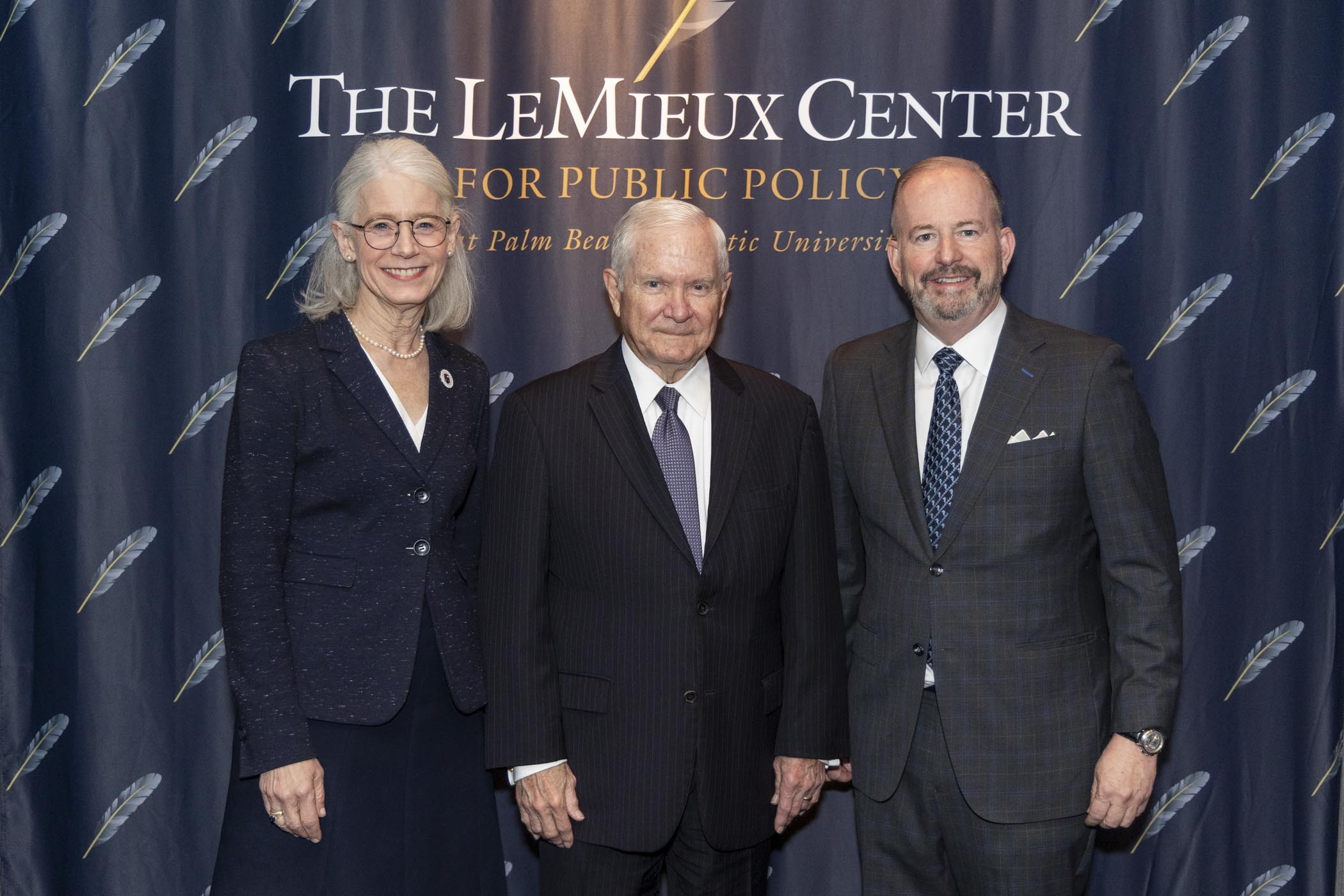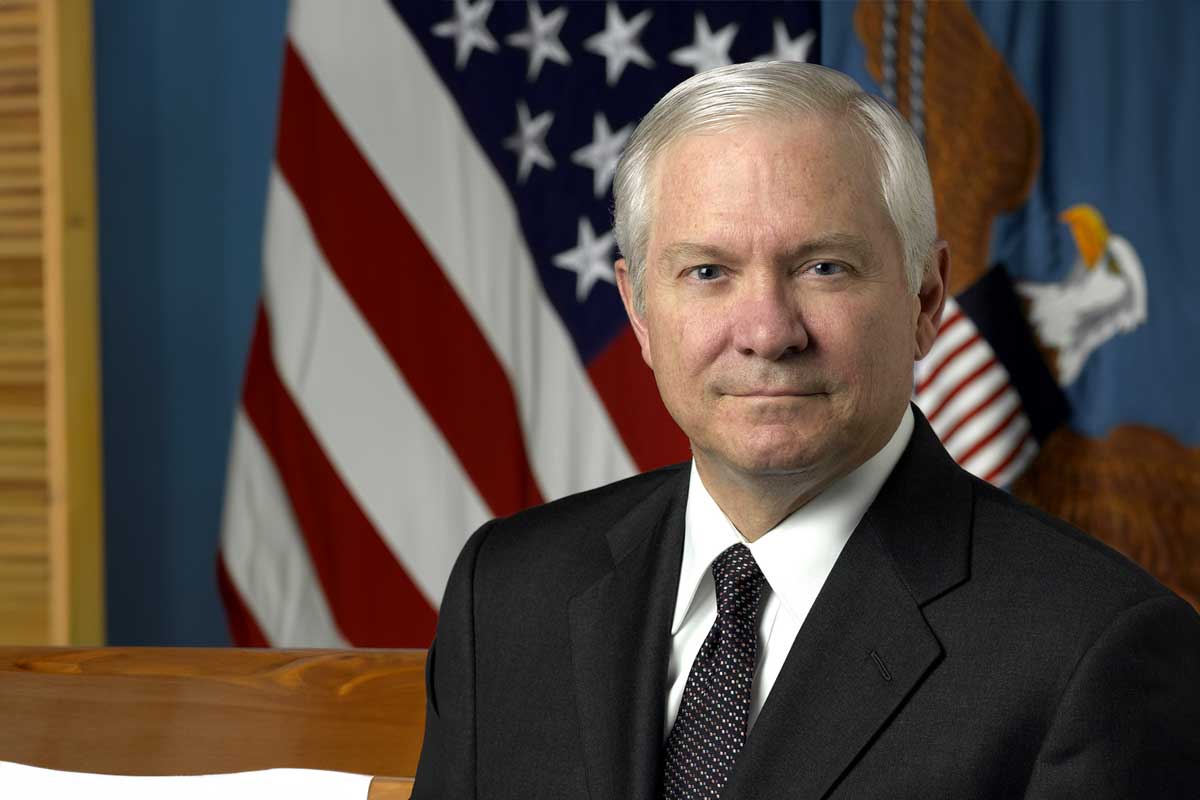The two PBA students selected as Freidheim Fellows last semester recently had the opportunity to share the results of their intensive research on free speech and foreign policy.
Every year, the LeMieux Center for Public Policy, one of the six Centers of Excellence at Palm Beach Atlantic University (PBA), manages the Freidheim Fellows program, named after generous donors Marguerite “Mitzi” and Cyrus Freidheim. The program allows selected students to do an in-depth research paper on an area of public policy while receiving guidance from former U.S. Senator George S. LeMieux and a PBA faculty advisor. The Friedheim Fellows students are also sponsored with a stipend covering research costs.
On Tuesday, October 24 in the Warren Library, last year’s fellows, senior Hattie Murray and recent graduate Caleb Bowman, presented their findings to peers, faculty and distinguished guests.
“This has become my favorite evening every year because it highlights our students,” PBA president Debra Schwinn said.
Murray, a member of The Frederick M. Supper’s Honors program, is pursuing a double major in politics and pre-law. She led the presentations with her research on the federal government’s usage of private social media companies to undermine free speech. Murray believes recent government administrations have used social media to advance their agenda, violating the First Amendment.
Government censorship has always been present in the United States, starting with the punishments inflicted on those who wrote against English rule. This abuse of liberty led to the creation of the First Amendment, which Murray stated is the framework of the distinctly American definition of freedom.
“This freedom of speech and press seems to be somewhat lost on the American people and therefore is being abused by the federal government,” Murray said.
She cited the Supreme Court’s pending case of Missouri v. Biden as an example of abuse of free speech. The case features officials in the states of Missouri and Louisiana accusing the Biden administration of using social media to censure the voices of Americans.
A common pattern is for posts against the current administration to be labeled as misinformation, even if they were fully or partially true.
Murray offered two propositions on how to fix the problem of the government’s involvement with social media that would effectively protect free speech. Her first idea is to classify social media sites as common carriers, putting them under regulations when receiving government favors. The second option is for them to be identified as publishers and lose their rights concerning libel. With either option, she emphasized the need for public guidelines for what qualifies as misinformation and an emphasis on productive civic discourse.
Bowman, a former PBA history major and current archaeology field technician, followed Murray’s presentation with his topic centering on the U.S. involvement in Yemen. Bowman became interested in the subject because of a mission trip with CMGlobal at PBA to Jordan, where he had the opportunity to meet with Yemen refugees.
The goal of Bowman’s research is to form a general policy centering on Yemen that would ensure the U.S.’s role as a peacemaker in the Middle East. Bowman decided against focusing on just one policy area because of the country’s constant change due to ongoing conflict.
“I could make a policy one day, and it would need to be immediately changed,” Bowman said.
Bowman believes America should care about Yemen because it is critical to promoting democratic freedom worldwide and solving humanitarian crises. However, he also stressed Yemen as an economic interest because of its unique positioning near United States trade routes. Other rising concerns in Yemen are the emergence of terrorism and the activity of China in the region.
Bowman’s proposal to help Yemen solve its dire situation is for the U.S. to support Saudi Arabian withdrawal from their involvement in the country, mediate conflicts and limit their own military presence. Bowman thinks this approach would open up trade routes and give the Yemen government the space needed to become legitimate and focus on their own domestic concerns.
Senator LeMieux said both presentations were excellent examples of the work being done at the Center, and he has high hopes for the future Friedheim Fellows, who will begin their research in the spring.
Watch the presentations here:
To learn more about the Freidheim Fellows program, visit https://www.pba.edu/academics/schools/centers-of-excellence/lemieux/fellows/.



